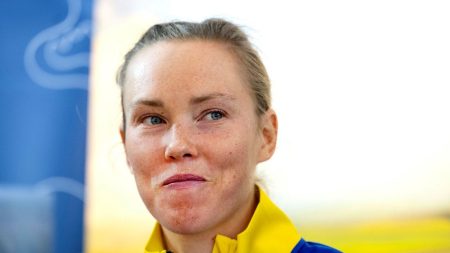Jenson Brooksby, the rising star of American tennis, is poised to make his presence felt at the upcoming Australian Open in January. However, his preparation extends beyond the court, into the realm of personal revelation. In a courageous move, the 24-year-old has chosen to publicly disclose his autism diagnosis, a decision driven by a desire for authenticity and connection with his fans. Brooksby seeks to dismantle preconceived notions surrounding autism and to present himself as a complete individual, whose neurodiversity is an integral part of his identity, not a defining characteristic. He believes that by sharing his experience, he can inspire others who share similar challenges and foster a greater understanding within the wider community. This act of vulnerability sets the stage for Brooksby’s Australian Open campaign, adding a layer of depth and personal narrative to his on-court performance.
Brooksby’s journey to this point has been marked by both triumph and adversity. His talent has always been undeniable, marked by an unorthodox playing style that often confounds opponents. He possesses a remarkable ability to anticipate shots and retrieve seemingly impossible balls, disrupting the rhythm of even the most seasoned players. However, alongside his prodigious talent, Brooksby has also faced periods of struggle, grappling with injuries and the immense pressure that accompanies a career in professional sports. His decision to reveal his autism diagnosis adds another dimension to his narrative, shedding light on the internal battles he has faced and the resilience he has demonstrated in overcoming them. This revelation frames his upcoming Australian Open appearance not only as a sporting event but also as a personal milestone, a testament to his courage and determination.
The significance of Brooksby’s announcement extends far beyond his personal journey. In a world often characterized by superficiality and curated online personas, his decision to embrace vulnerability stands as a powerful counter-narrative. He challenges the prevailing culture of concealing perceived imperfections, opting instead for radical transparency. By publicly acknowledging his autism, Brooksby is not seeking sympathy or special treatment; rather, he aims to normalize neurodiversity within the intensely competitive world of professional sports. He seeks to inspire others to embrace their authentic selves, demonstrating that perceived limitations can be transformed into sources of strength. This act of self-acceptance resonates deeply, particularly for individuals on the autism spectrum and their families, who often navigate a landscape of societal misunderstanding and stigma.
Brooksby’s disclosure has the potential to reshape perceptions surrounding autism within the broader community. Autism is often misunderstood, characterized by stereotypes and misconceptions that reduce individuals to a single label. By sharing his personal experience, Brooksby provides a nuanced and humanizing perspective, challenging these reductive narratives. He highlights the diversity within the autistic community, emphasizing that autism manifests differently in each individual, encompassing a wide spectrum of strengths and challenges. His story underscores the importance of moving beyond labels and appreciating individuals for their unique qualities, fostering a culture of inclusivity and acceptance. This message resonates not only within the sporting world but also across society, promoting a greater understanding of neurodiversity and its contributions to our collective tapestry.
The timing of Brooksby’s announcement, just weeks before the Australian Open, adds another layer of intrigue to his upcoming campaign. He enters the tournament not only as a talented athlete but also as an advocate for neurodiversity. The spotlight will be firmly fixed on him, not only for his on-court performance but also for the message he represents. This added attention could potentially add pressure, but it also provides a platform for Brooksby to inspire and educate. His performance on the court will be a testament to his dedication and skill, while his willingness to share his story will be a testament to his character and courage. The Australian Open, therefore, becomes a stage not only for athletic competition but also for a broader conversation about acceptance, inclusion, and the power of embracing one’s authentic self.
As Jenson Brooksby prepares to compete in the Australian Open, he carries with him the weight of expectation, both as a rising tennis star and as a newly-minted advocate for neurodiversity. He steps onto the court not just as an individual athlete but as a representative of a community often marginalized and misunderstood. His journey is a reminder that strength can be found in vulnerability, and that by embracing our authentic selves, we can inspire others to do the same. The Australian Open is not merely a tennis tournament for Brooksby; it is a platform to challenge perceptions, promote understanding, and ultimately, to rewrite the narrative of what it means to be a champion, both on and off the court. His story is one of resilience, self-acceptance, and the courage to be true to oneself, qualities that resonate far beyond the confines of the tennis world. Brooksby’s journey is just beginning, and his impact promises to extend far beyond the baseline.














